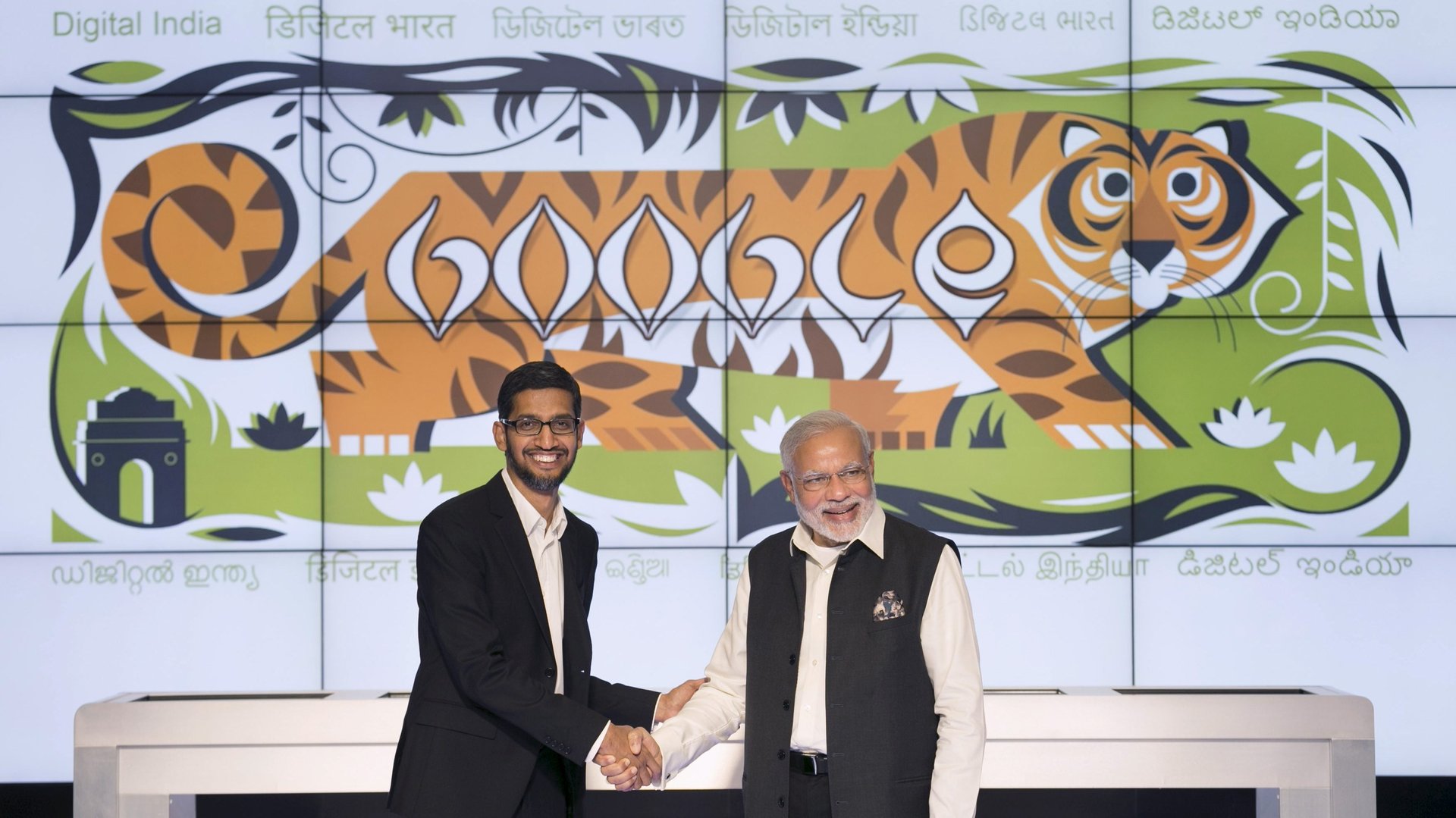Social media censorship in India has increased over five fold since 2016
The Indian government has ramped up the use of an internet censorship law to block users and posts on social media.


The Indian government has ramped up the use of an internet censorship law to block users and posts on social media.
Prime minister Narendra Modi’s administration ordered social media platforms to take down 3,433 URLs between January and October this year, the ministry of electronics and information technology informed India’s parliament yesterday (Nov. 20). This is more than a five-fold rise since 2016.
The ministry did not specify which platforms comprised “social media,” but in earlier official notes it has included Facebook, Twitter, and YouTube. The URLs removed could have been of specific posts or user profiles.
The government can order content removal on the internet under India’s Information Technology Act, which was passed in 2000, by a coalition led by the Bharatiya Janata Party, of which Modi is a member.
Section 69A of this law authorises the government to block any digital information “if it is satisfied that it is necessary or expedient to do so, in the interest of sovereignty and integrity of India, defence of India, security of the state, friendly relations with foreign states or public order or for preventing incitement to the commission of any cognisable offence.”
Just last month, an Indian court ordered Facebook, Twitter, and Google to remove government-flagged content globally, not just in India. Domestically-blocked content for now can be accessed by Indian users via technologies like VPNs that allow them to hide their location.
The fight to control content on the Indian internet has heated up in the past few weeks.
The UN special rapporteur for freedom of opinion and expression criticised the Indian government last month for targeting the Twitter accounts of individuals and even a news magazine based in Kashmir. Earlier this year, during a dispute with Twitter, government officials had leaked to the press their threats to imprison its executives if the platform didn’t follow official content removal instructions.
Censorship is being administered not only by the Indian government, but also by the platforms themselves. Thousands of Indian users joined the decentralised social media platform Mastodon just this month, criticising what they say is Twitter’s arbitrary take-down of posts and suspension of user accounts that talk about oppression based on caste, a social hierarchy prevalent in India. Twitter has refuted these charges. Despite advocacy from a section of Indian users, the platform has not included caste-based abuse in its hate speech rules, a move that Mastodon made only days after user registrations from India spiked.